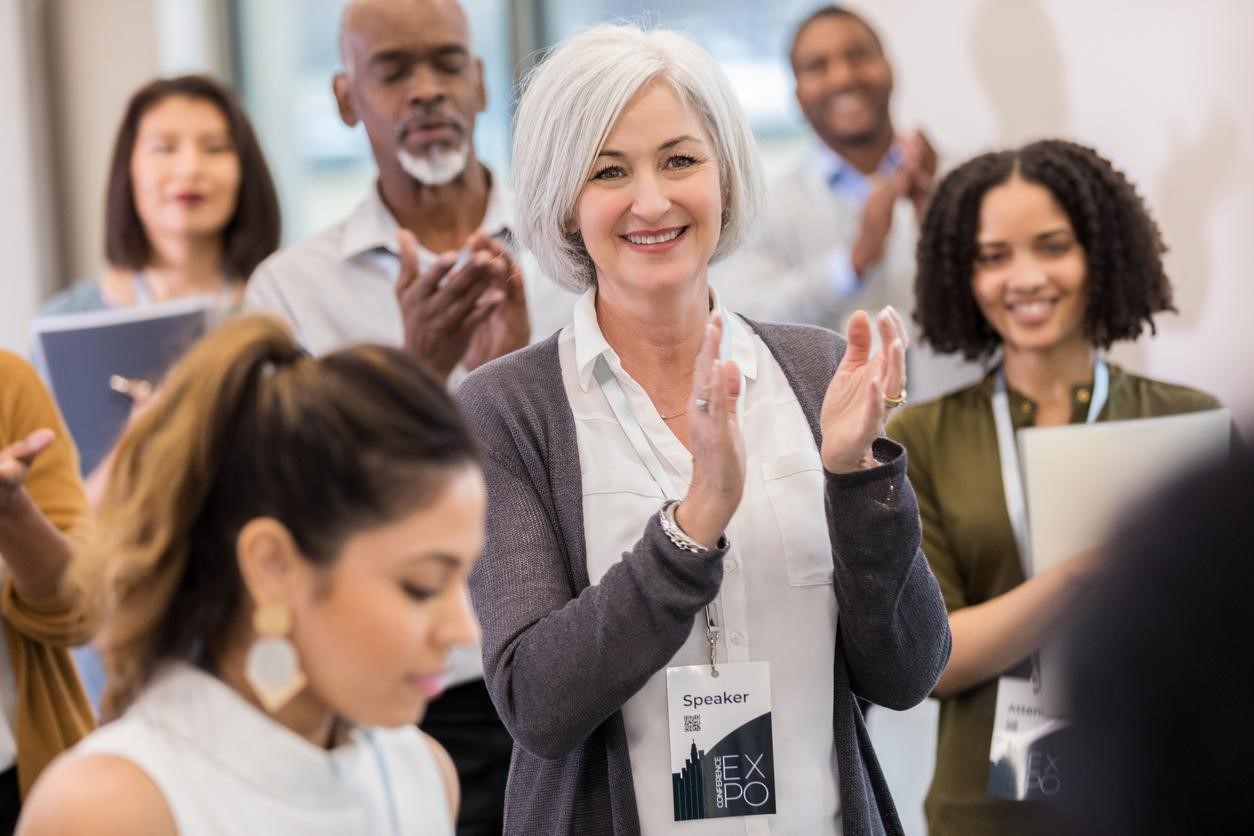Menopause has always been a part of women’s lives, yet for too long, it has been a topic shrouded in silence, especially in the workplace. As society advances and more women occupy senior positions and continue working longer into their lives, the conversation around menopause must evolve. Deborah Garlick, a leading voice in the movement for menopause awareness and support in the workplace, and founder of Menopause Friendly highlights the critical need for health equality. This extends beyond just women in menopause, addressing a broader spectrum of workplace inclusivity and well-being.

It is a known fact that there are more women in the workforce than ever before. These women are not just participating; they are leading, contributing at senior levels, and working through significant life transitions, including menopause. Deborah Garlick emphasizes that menopause is not new – it has existed for as long as women have – but the dynamics have changed. Women today are working longer and living longer, meaning they are more likely to experience menopause while still in the workforce.
However, despite its prevalence, menopause remains a low-awareness topic, often leading to misconceptions and a lack of support. “Many women don’t realize that what they’re experiencing is menopause,” the founder notes. Symptoms such as hot flashes, anxiety, and brain fog can significantly impact work, yet many women feel they must work harder to compensate, fearing they might appear less productive. This highlights a crucial aspect of health equality: recognizing and addressing these challenges in the workplace without stigmatizing those affected.
Deborah has worked with numerous organizations to implement small but significant changes that make a world of difference for menopausal women. She recounts her first experience with a police force, where an officer expressed concern that discussing menopause would make women appear weak. “It’s not about weakness,” Deborah explains. “It’s about awareness, understanding, and support – taking away barriers so everyone can perform at their best.”
These small changes – such as adjusting room temperatures, allowing flexible breaks, or simply fostering an open dialogue – can help alleviate the symptoms’ impact. This, in turn, benefits the employer by reducing absenteeism, retaining talent, and improving overall performance. “Supporting people in advancing their careers promotes greater equality within your organization,” Deborah explains.
Menopause has been overlooked as a significant healthcare issue for women, particularly in the workplace. Over the past eight years, however, significant changes have occurred. Employers who have taken action to support their colleagues have contributed to changing hearts and minds. Yet, Deborah stresses the need for continued focus, especially in ensuring that women have access to the right healthcare support.
This issue is not confined to the UK. The lack of knowledge and proper support is a global problem, affecting women in the US, Australia, and beyond. Hormone Replacement Therapy (HRT), for example, remains a challenge, with shortages and varying levels of knowledge among healthcare providers. The conversation around menopause must become a part of broader health equality goals within organizations worldwide.
One of the most significant shifts Garlick has observed, is the increasing willingness to talk openly about menopause. In training sessions, she often encounters individuals who had no idea their symptoms could be related to menopause. This lack of information has led to misdiagnoses and unnecessary treatments, such as prescribing antidepressants instead of addressing the root cause. By raising awareness and normalizing the conversation, more women – and men – are beginning to understand the broader picture, leading to life-changing realizations.
Deborah Garlick is encouraged by the growing inclusivity in these discussions. “Menopause impacts everyone—either directly for half of us or through our relationships for the other half,” she notes. It’s becoming an ‘everybody conversation,’ no longer restricted to closed-door discussions filled with shame. This shift towards inclusivity and understanding is crucial in fostering a workplace culture that supports health equality.
Despite the progress, there are still significant obstacles to achieving health equality in the workplace. Deborah even points out that some organizations, even those that pride themselves on being well-being-focused, have yet to take action on menopause. Often, this is due to competing priorities, economic challenges, or a lack of understanding about the importance of health equality.
That is why this vocalist for change underscores the need for a culture shift, both within organizations and at a societal level. Laws like the UK’s Equality Act (2010) have a part to play, but she emphasizes that organizations shouldn’t wait for legal requirements to support their employees.
The business case for supporting menopausal women in the workplace is clear. It goes beyond retaining talent and improving performance; it’s about creating a workplace that values equality and well-being for all. As Deborah concludes, “It’s just the right thing to do.” By making small changes and fostering an inclusive culture, organizations can ensure that all employees, regardless of their life stage, can thrive at work.
**This article is intended for informational purposes only and is not a replacement for professional medical advice. If you need medical guidance, diagnosis, or treatment, please seek assistance from a healthcare professional or provider.

